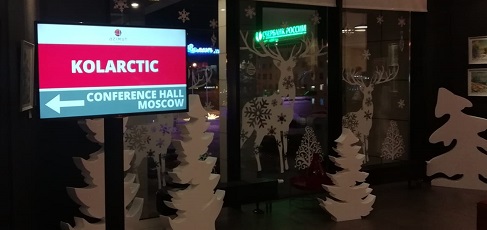Background
In accordance with Kolarctic CBC 2014-2020 Joint Operational Programme and the Strategic Environmental Assessment “oil and hydrocarbon pollution and the risk of accidents have become a real threat owing to the increasing global demand for oil and gas, which has led to an expansion of the oil and hydrocarbon industry and transportation activities in the Kolarctic CBC Programme area, both on land and at sea”. In the 2015 Arctic Monitoring and Assessment Programme report, a big oil spill is ranked as one of the biggest threats to the Arctic environment. There is a universally acknowledged hazard of oil spills at all stages of oil exploration, production and transportation. And the intensifying shipping traffic along the Northern Sea Route is another negative factor in the oil-spill risk profile of the region. At present, the most promising method for remediation of oil-contaminated soils, both from the economic and environmental perspective, is a biotechnological approach based on the natural self-recovery processes in the environment.
Objective
The ACBR project aims at developing an innovative tool for combating the adverse effects of pollution. The main output of the project is a biotechnology for comprehensive remediation of oil-contaminated marine coastal areas in the Arctic which will be a more efficient and eco-friendly solution in comparison with the existing methods. The technology is based on three components:
- Oil-degrading microbial inoculants
- Sorbents
- Plants
Microbial inoculants will be obtained by enriching the most efficient oil-oxidizing microorganisms (bacteria, fungi, algae) from the environmental samples of the studied area. In addition to fieldwork laboratory work including modern molecular biological analysis such as functional metagenomics is carried out. The second component (sorbents) will be developed on the basis of two types of materials: organic (turf) and mineral (vermiculite). Their properties will be modified to enhance the hydrophobic and sorption capacities. The third element of the technology is the use of higher plants for revegetation on the oil-contaminated areas. The work will include the study of their resistance to hydrocarbons and the vegetation ability.
Project implementation
An extensive scope of work will be carried out at the premises of the Murmansk Centre for Standardisation, Metrology and Testing. Their laboratory equipped with a temperature-regulated “climate room” will facilitate the performance of tests under low temperatures typical for the Arctic. The experiments carried out in the climate room will include the testing of bioremediation technology in sea water of the coastal zone, supra-littoral zone and area above the splash zone. The work on development of microbial inoculants will include metagenomic analysis at the University of Tromsø and at Finnish Environment Institute SYKE. Another distinctive feature of the project is the use of dispersants in experimental work. The Norwegian legislation allows dispersants to be used in OSR, for Russia their use requires a special permission, whereas for Finland they are not recommended to use. However, active research on the effect of dispersed oil on biota is going on in Finland at the moment.
Collaboration
ACBR is an integrated project that is built on cooperation between the leading research and educational institutions and representatives of state authority. The resources, experience and thematic expertise of all partners will complement each other in a joint initiative. The project intends to prepare recommendations for the target groups on the use of this technology for advanced treatment of oil-contaminated coastal ecosystems and present it to the key decision-makers. In general terms, apart from its the environmental benefit to the population of the North Calotte and Russia, the project meets the needs of public and private organizations responsible for oil-spill preparedness and involved in all cycles of oil production from exploration to shipping. The ambition of the project team is to contribute to safeguarding the natural riches of the flourishing yet fragile Arctic ecoregion for future generations.

The kickoff meeting of the ACBR project was held in Murmansk in December 2018.
The project is funded by the Kolarctic CBC, EU, Russia, Norway and Finland.
More information:
Senior Research Scientist Anna Reunamo
Finnish Environment Institute (SYKE), Marine Research Centre
firstname.surname@ymparisto.fi
Tel. +358 400 397 696